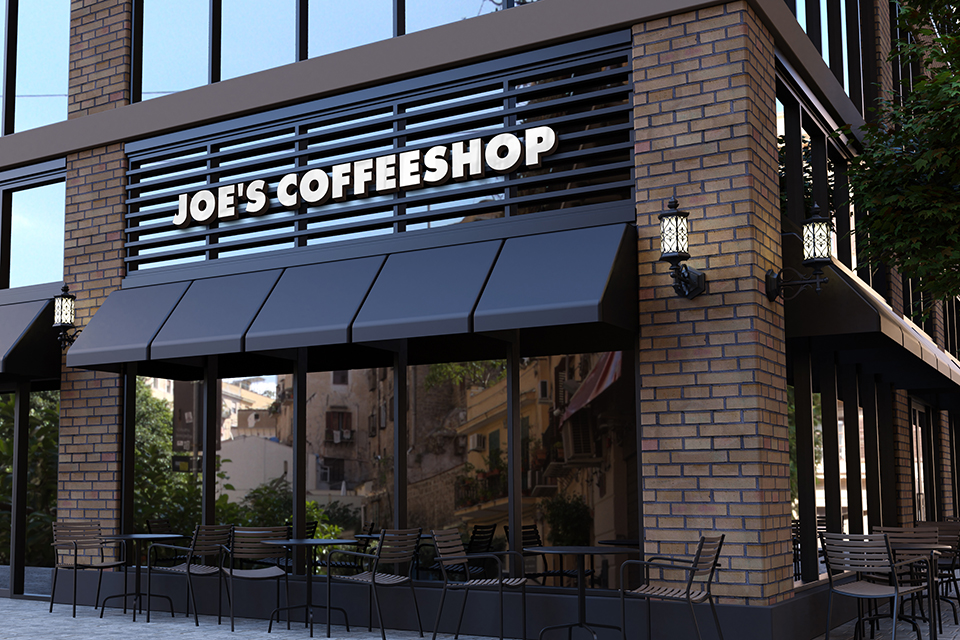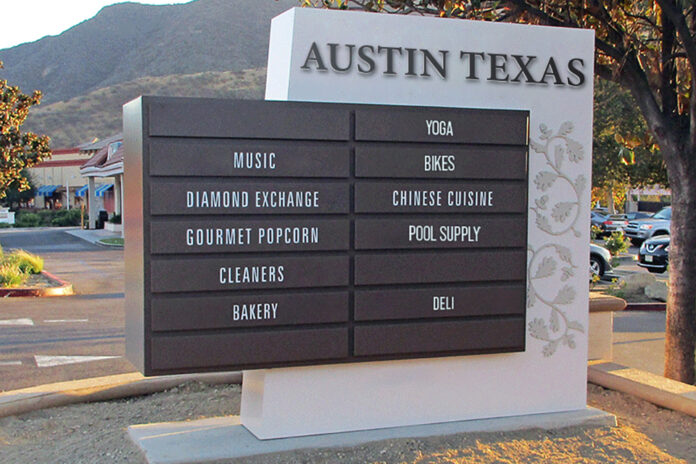
Our sign business launched during a booming retail construction period in Austin, Texas, which offered us an incredible opportunity to educate retail developers and property managers regarding city codes and retail signage requirements. We quickly learned that breaking into the retail market and building relationships with property managers and developers requires patience and a strategic approach.
Here are three tips for your sign shop that helped us build lasting relationships and become the go-to retail sign provider in our community.
1. Have Patience. It’s a Long Game.
It takes time to establish trust with property managers and developers.
Our sign company conducted research to identify major retail property management companies and developers in our area and then learn about their projects. Once we had a list, we approached them with offers to host introductory luncheons in their offices.
The idea was simple but effective: we would show up early with a tasty lunch, usually tacos, along with a floral bouquet and a business card attached. We would then showcase our portfolio.
This fostered a friendly atmosphere with lots of handshakes and introductions, and we used the opportunity to get to know them personally. They appreciated having a vendor that would listen and learn about the challenges they were encountering, especially as it related to retail signage.
If your sign shop goes the luncheon route, be prepared to share your website or slide deck showcase your portfolio. People love to look at photos of creative signage, especially if it includes a story about the problems you solved on those projects. They will start to understand your capabilities without you having to do much selling.
Always remember to follow up the luncheon with a nice “thank you” card or email with all your contact information.

2. Education is Key
Early on, our sign shop learned to position itself as the preferred sign vendor for the property. As a result, property managers forwarded us the contact information of new tenants, ensuring they had proper signage.
This led to numerous projects, including channel letters, pylon and monument signs, development signage, and ongoing service work; this became a significant source of sales growth for our business.
To have your shop achieve preferred sign vendor status with property managers, consider providing a few “value added” services.
Property managers and developers must navigate complex city sign codes, especially when it comes to their tenants’ sign criteria. Our sign shop found it was not uncommon for property managers to grant sign installation permission to new tenants only to face rejection from the city permit office later.
We addressed this issue by offering to research the city’s sign codes and write a sign criterion for the property that aligned with both the codes and property requirements. This comprehensive sign criterion covered all aspects—including size, color, lighting restrictions, and architectural requirements (such as materials used and attachment methods). The document with our criterion could then be attached to the tenant lease agreement, eliminating any confusion regarding signage requirements.
In addition to providing a comprehensive sign criterion, remember that retail developers are primarily concerned with the return on investment (ROI) they can achieve from their sign projects.
With this in mind, a sign shop should be prepared to clearly illustrate the value retail signs bring to a development. You can do this by emphasizing how your signs will attract potential tenants by increasing visibility, foot traffic, and brand recognition.
If a tenant is successful, then the property manager will be successful; impactful retail signage can be the key that helps everyone.

3. Provide Excellent Customer Service and Support
For our shop, strong customer service was critical in building strong relationships with property managers and developers.
So, apart from offering quality products and services, your shop should ensure consistent communication, prompt responses to tenant referrals and service requests, and transparency throughout the process. Additionally offer reliable after-sales warranty support to address any issues that may arise after installation.
If you go out of your way to ensure they are happy, they are more likely to become repeat clients and recommend your services to other property developers in their community.
Remember selling to property developers requires patience and persistence, as larger development projects can have long lead times.
By understanding their signage needs, educating them on the value of effective signage, and offering creative solutions that help everyone involved, you too can become the “go-to” sign provider in your community.
Now go out there and make some great signage for your clients!
Joe Arenella founded two sign shops before launching SignTracker, a software program that helps sign shop owners track their jobs, quote more consistently, and provide their team a birds-eye view into what’s going on in the shop. Joe is also the host of the Behind the Signs Facebook group and YouTube video podcast.











